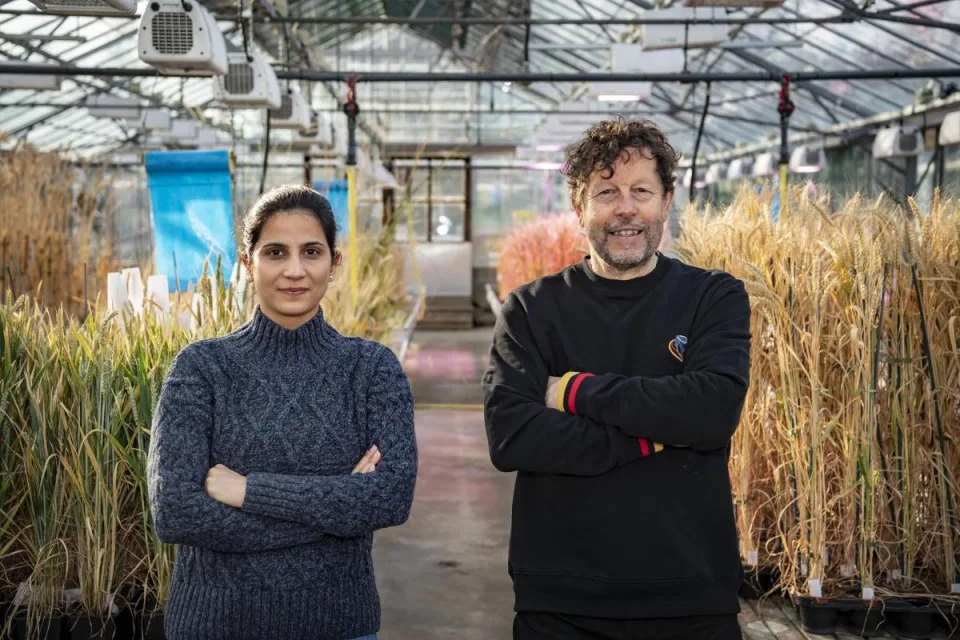Chris Hill
Sun, 19 February 2023

Dr Sanu Arora and Prof Paul Nicholson with experimental wheat crops at the John Innes Centre - Picture: Phil Robinson (Image: Phil Robinson)
Norwich crop scientists have made a vital breakthrough in the battle against a destructive wheat disease - after finding defence genes in plants gathered almost 100 years ago.
The John Innes Centre (JIC) is leading international efforts to combat the "looming threat" of wheat blast, which has spread across South America, Zambia, India and Bangladesh since it was first reported in Brazil in 1985.
Researchers have identified two genes which protected experimental wheat plants against the fungal pathogen which causes the disease.
The team used a technique called AgRenSeq to search for useful resistance genes among wild grass relatives of wheat and a panel of heritage varieties called the Watkins Collection.
Collected from around the world in the 1930s, it consists of more than 300 wheat lines containing genetic diversity which existed before intensive plant-breeding - but which could now help protect modern crops from emerging diseases.
JIC group leader Prof Paul Nicholson said: “We have made an important discovery on an emerging disease that threatens global food security and, in the process, highlighted the power of the Watkins Collection and the AgRenSeq genomic toolkit.
"Now our role is to interact with organisations such as CIMMYT (the International Maize and Wheat Improvement Center) to provide information on additional resistance genes and enable them to ensure that their breeding materials contain these genes so that they are protected against blast."
Dr Sanu Arora, first author of the study which appears in the Nature Plants journal, added: "The disastrous effect of wheat blast in the wheat belts of South America, South Asia and Africa is a warning bell for Europe.
"We are not certain if this disease is already sitting on the horizon of Europe but it could potentially travel through human migration or seed import. Therefore, it is critically important to defend this vital crop against the looming threat."
No comments:
Post a Comment